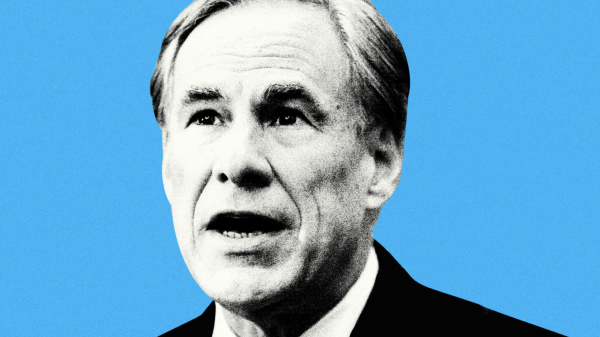The Refugee Crisis: How America Should Help
November 12, 2015
“Give me your tired, your poor / Your huddled masses yearning to breathe free / The wretched refuse of your teeming shore / Send these, the homeless, tempest-tost to me…” These words emblazon the Statue of Liberty, a promise that anyone in need of asylum will find it in America. But who could be more in need of asylum than the millions of refugees currently fleeing Syria and other war-torn countries in the Middle East?
The US has already sent $4.5 billion in financial aid to help meet the needs of the Syrian people. It has also accepted about 1,500 Syrian refugees, with plans to bring in 10,000 more during the new fiscal year. However, this number isn’t nearly enough. In order to live up to its status as a world power, America should increase its quota of Syrian refugees to at least 100,000.
Why? Well, for one thing, America has historically been a leader in humanitarian aid. Since the end of its isolationist policy during World War II, the US has resettled more refugees than the rest of the world combined and accepts more refugees per year than any other country. But in response to the current crisis, America is doing much less than Europe is. Even the most unwilling European countries are taking in thousands of refugees. The German vice-chancellor has claimed that Germany alone will accept half a million migrants annually for the next several years. Even countries on the other side of the world, like Australia—which will accept 12,000 refugees—and Venezuela, which will take 20,000—are pitching in to help.
So, what went wrong in America? In a word—fear.
Politicians are afraid that allowing in more refugees will enable terrorists to gain access to the US by masquerading as refugees. While these fears can be somewhat rationalized—ISIS has made it known that they want to infiltrate the US through these channels—they are by no means justification to turn away actual refugees. First, a careful vetting process can drastically lower the risk. Second, the risk isn’t that high in the first place. According to the news website Defense One, officials from the Department of Homeland Security were unable to provide any evidence that Syrian refugees could pose a threat. And there’s been no evidence of terror-related activities among the refugees already in the US. In fact, the majority of Islamic terror attacks in the US since 9/11 were carried out by homegrown terrorists.
In addition, the US is part of the problem in the Middle East and so should be part of the solution. America is currently playing a part in the Syrian War by training and arming rebel groups in Syria. Furthermore, the prominence of ISIS, which is now terrorizing Syrians and Iraqis and causing them to flee, can be partly attributed to the instability created by the US invasion of Iraq in 2003. In 1975, the US accepted responsibility for the refugees created by the Vietnam War and took in about 130,000 of them. We owe it to the people of the Middle East to take in at least this many Syrian refugees—as well as refugees from Iraq and Afghanistan—who are bearing the cost of US actions.
Accepting more refugees is also a good foreign policy move. According to Kyanna Ouyang ’18, “It will show other countries that we’re on high moral ground, which will lead to more allies and support for our policies. At the moment, a lot of countries in the Middle East don’t like us, and taking initiative in resettling refugees will show that we can do more than just cause conflict.”
Lastly, the United States should accept more refugees because they will benefit our country. America has long been built up by the contributions of immigrants, and past refugee populations helped make our country greater. For example, German refugee scientists helped us win World War II, and Eastern European scholars fleeing communism became professors at our universities. Refugees from places like Hungary, Cuba, Vietnam and China have contributed to the workforce, started companies, and become leaders in business and government. Similarly, many of the Syrian refugees are skilled workers who can boost our economy and society.
It’s true that the current refugee crisis is a controversial and polarizing issue—not just in America, but in Europe and across the world. At the same time, it’s hard for us in America to imagine the terror and uncertainty that these refugees are facing. We sometimes forget that each refugee is a person—a person just like us. After all, we all want the same thing: security and freedom for ourselves and our families. America vaunts itself as the “Land of the Free”. Now it’s time we start living up to that motto.




DavidAlexander • Nov 16, 2015 at 2:20 pm
america has a large amount of other immigrants per year increasing refugees will overload our country with these immgrants were constantly fighting in the middle east because no one else will to say that we arent a world power because we wont accept immigrants form over 3000 miles away is ridiculous
emily rose • Nov 16, 2015 at 2:17 pm
i think that the events that happened in paris last friday were really scary for everyone and that something must be done about terrorist.Lastly, we will be the next victim
Jessica Smith • Nov 16, 2015 at 2:12 pm
I think the attacks were terrifying for everyone around. With the terrorists getting through refugee camps, that frightens a lot people about terrorists coming through to places like America. It is a very scary concept and sometimes I wish America would just not get involved.
carly barton • Nov 16, 2015 at 2:07 pm
while reading this article something that caught my eye is how much money the US has donated to help out with the Refugee Crisis.
Rachel Tam • Nov 16, 2015 at 2:03 pm
I especially liked your call to action, i agree that we need to take action, and live up to the motto “land of the free”!!!!!!
Annie Zhao • Nov 16, 2015 at 1:42 pm
I find this article very interesting because the day after this article was published, Paris was attacked. Since one of the attackers was found to have a Syrian passport, it changes a lot of people’s opinions on the cause
Rebecca Schenkman • Nov 16, 2015 at 12:58 pm
I am going to have to disagree with this because America is not responsible for other peoples crisis. We have no idea where these Syrian’s are coming from, if they have a criminal background, or what their role in the conflict was. Therefore, letting anyone in our country with financial aid isn’t fair to the Americans who have to pay more taxes in order to have people in their country who they are may or may not want.